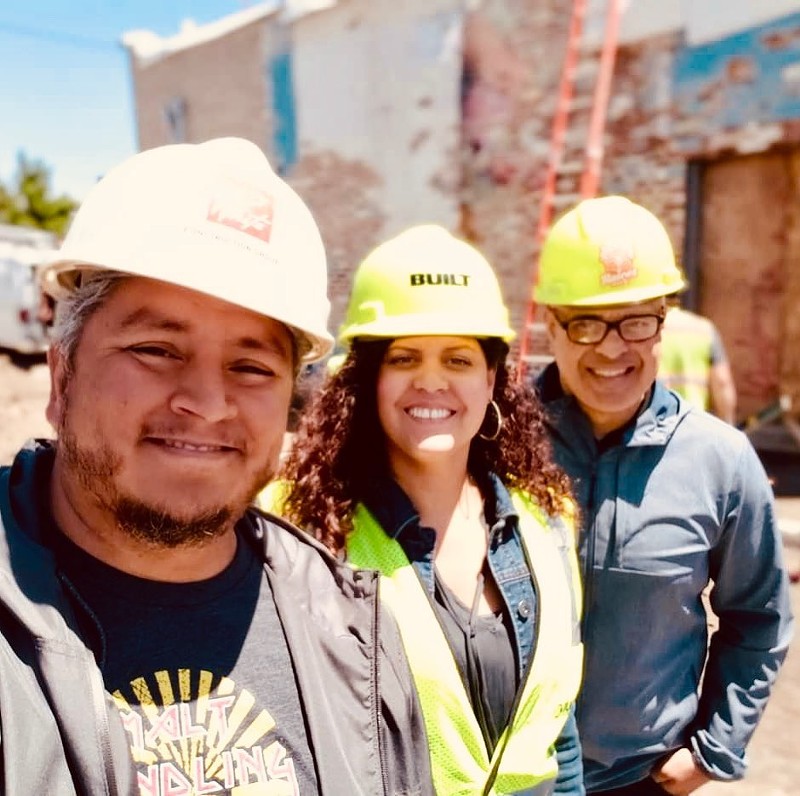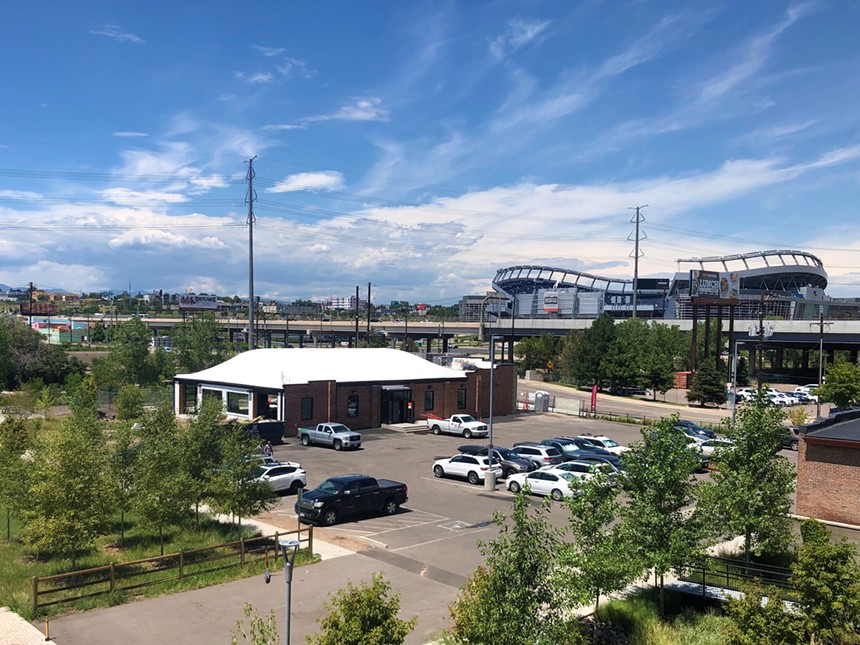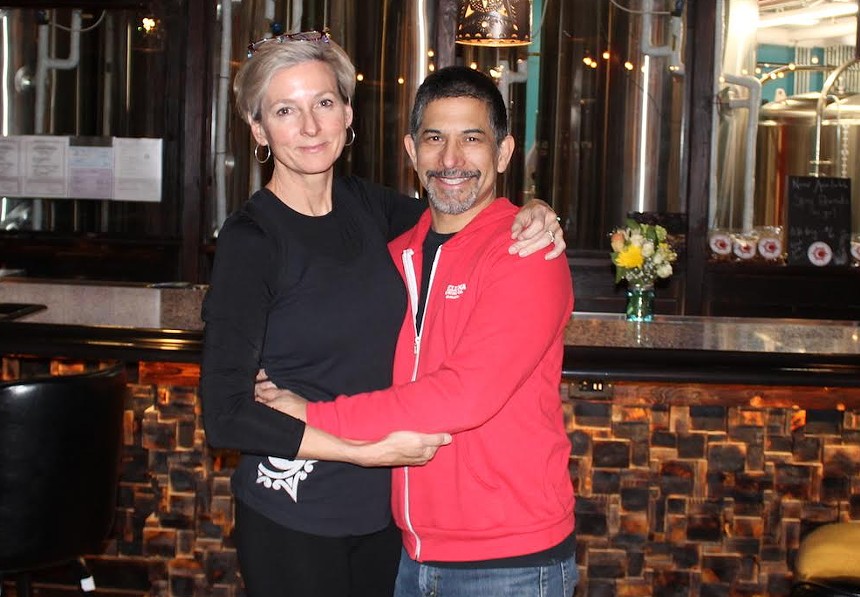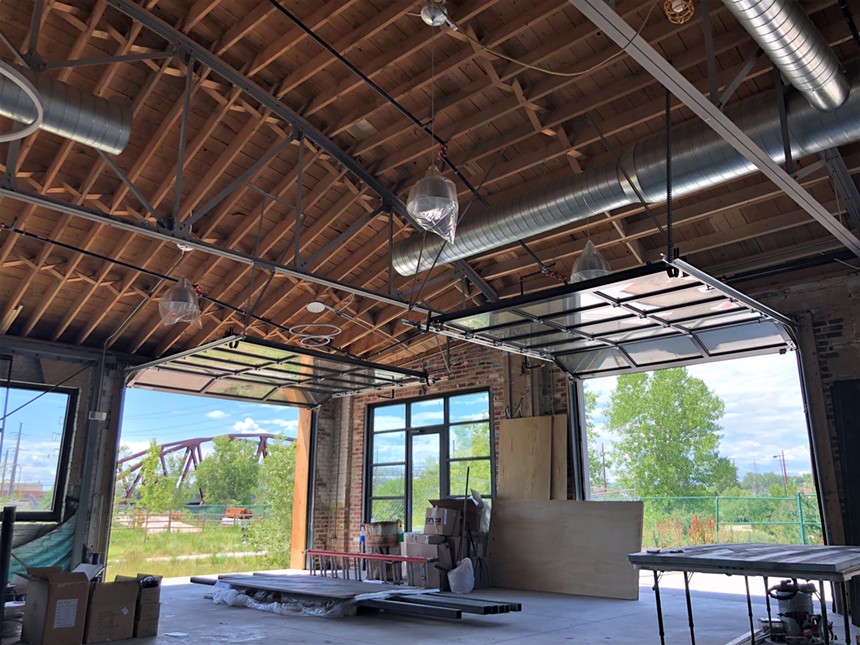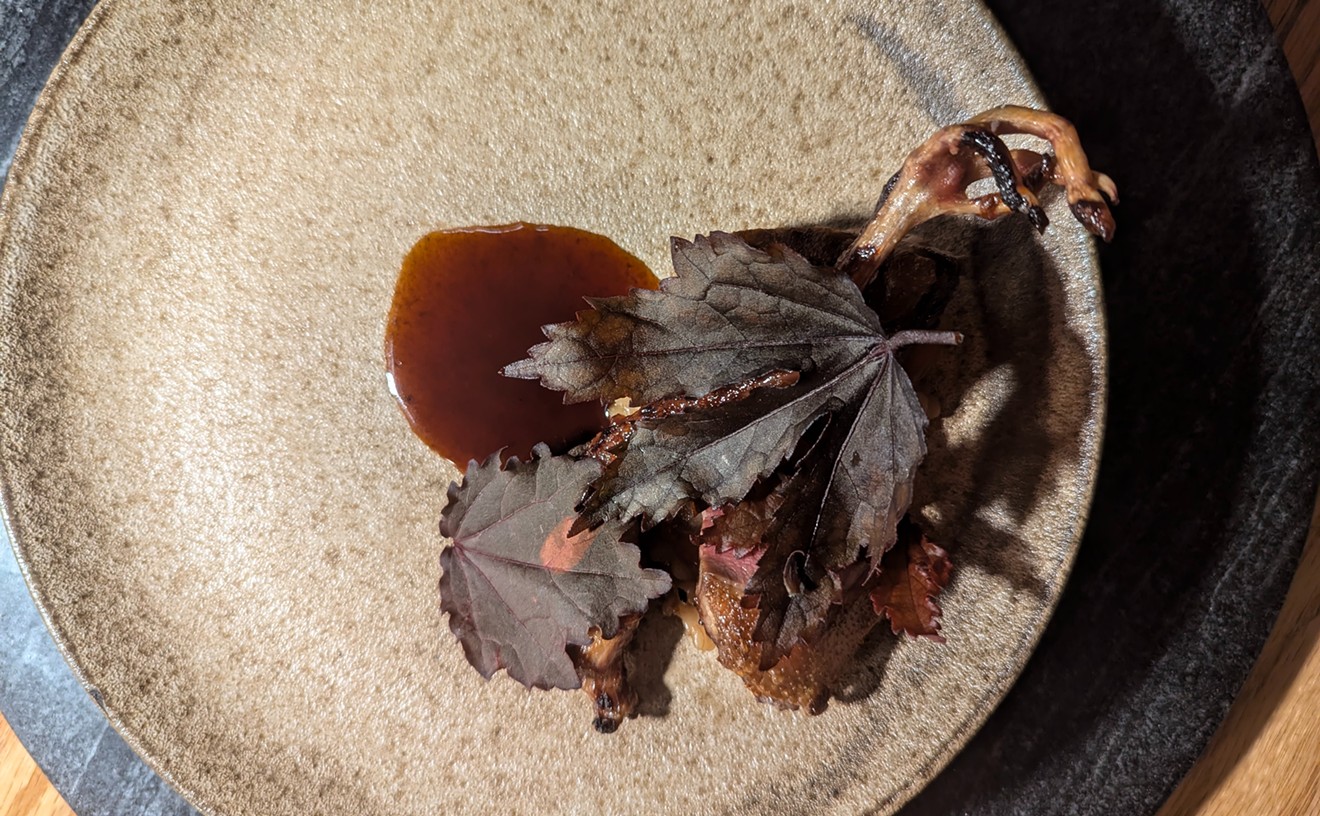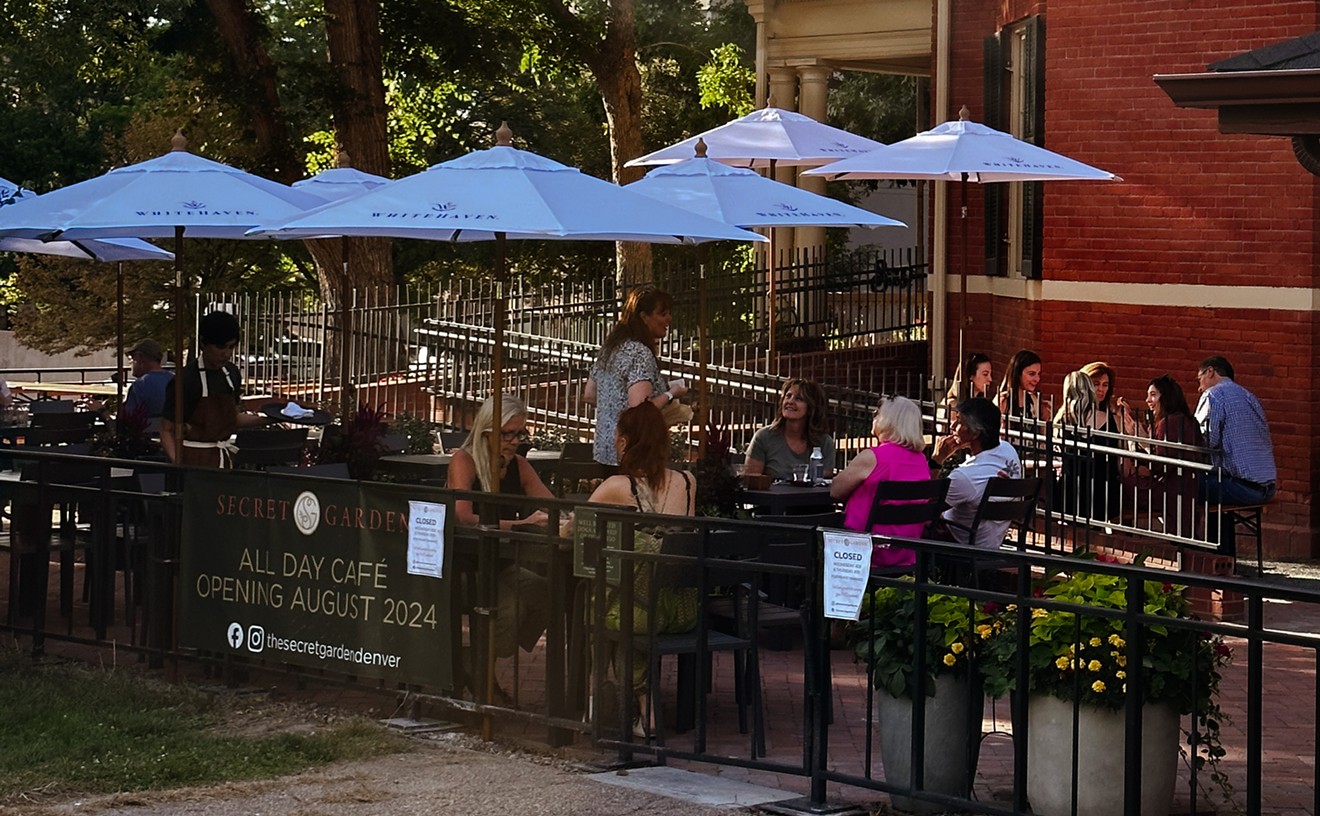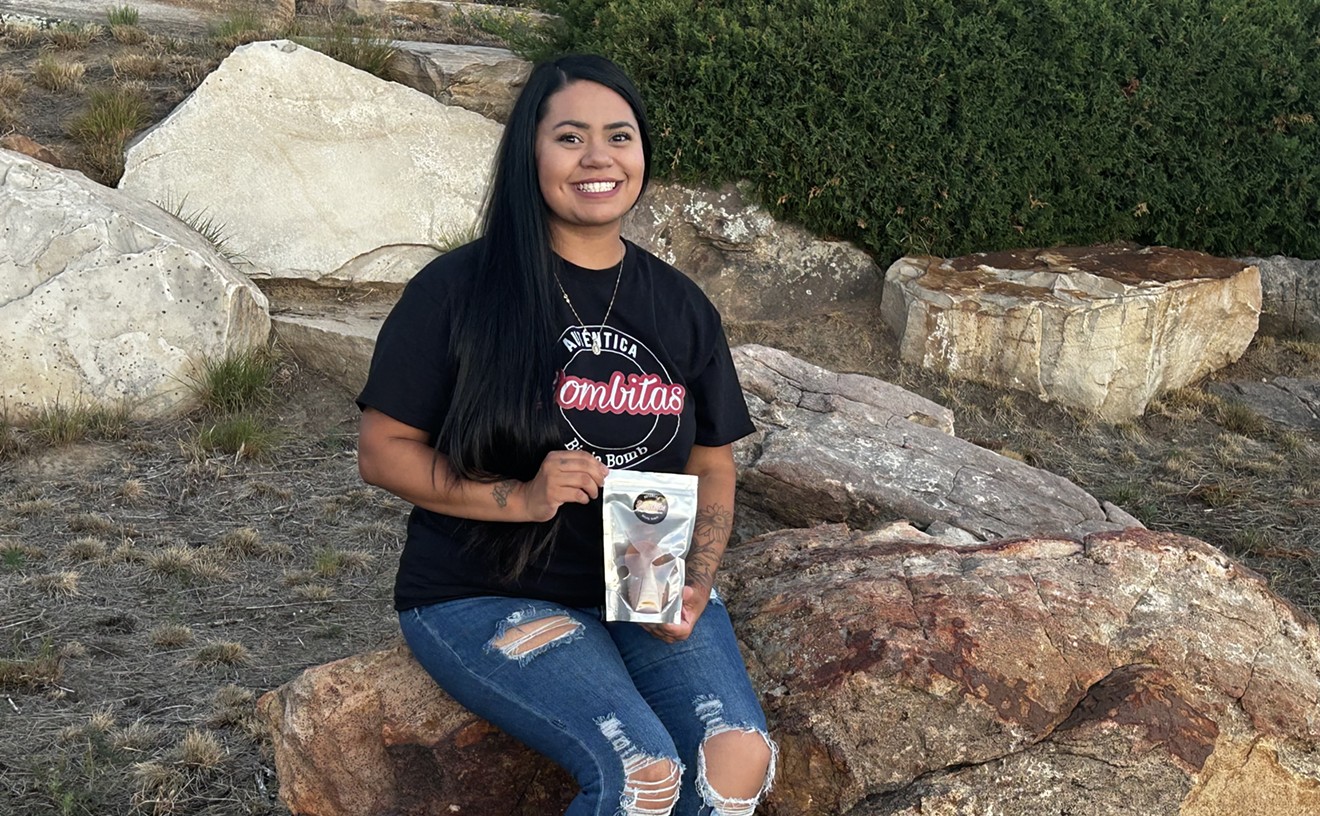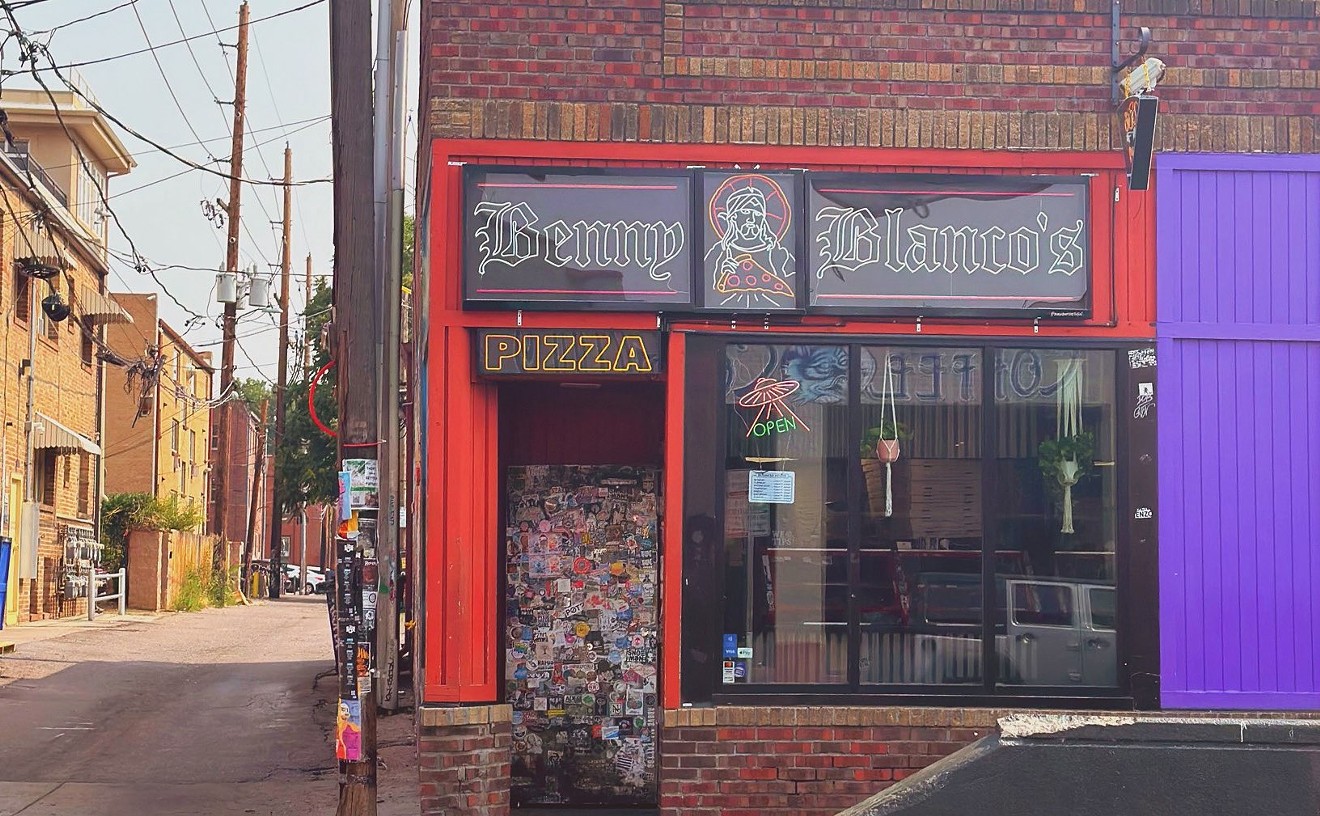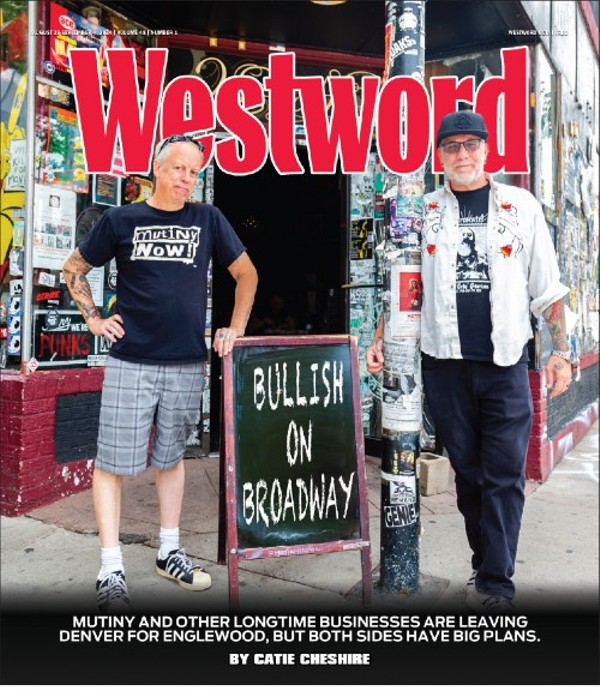The neighborhood’s most distinguishing feature is Mile High Stadium and its vast sea of parking lots, though many of the people who live in Sun Valley, more than 50 percent of whom are Hispanic, probably can’t afford season tickets: Sun Valley has one of the highest poverty rates in town and one of the lowest income levels.
“This has always been a working-class neighborhood,” says Jose Beteta, adding that it was near the location of the city’s founding during the gold rush of the late 1850s and has been home to multiple ethnic groups over the decades. “As of now, it is the most diverse neighborhood in Denver.”
It is also where Beteta; his wife, Tamil Maldonado; and professional brewer Martin Vargas will open Raices Brewing Company later this summer. Taking its name from the Spanish word for “roots,” Raices will be home to a fifteen-barrel brewing system, twenty taps, an expansive patio leading to the edges of the South Platte River, space for pop-up kitchens, and a roots motif that will honor Latino heritage and culture from multiple countries.
But more than that, the three hope that Raices serves as a middle ground — just like Sun Valley itself — between Denver’s Latino culture and its predominantly white craft-beer culture.
It won’t be easy. And the first test will come Saturday, September 14, when Raices hosts Suave Fest on the grounds around the brewery, at 2060 West Colfax Avenue, and at Steam on the Platte, a 3.2-acre mixed-use project at 1401 Zuni Street, across the street the from Mile High Stadium's bus lots and near the future site of Meow Wolf.
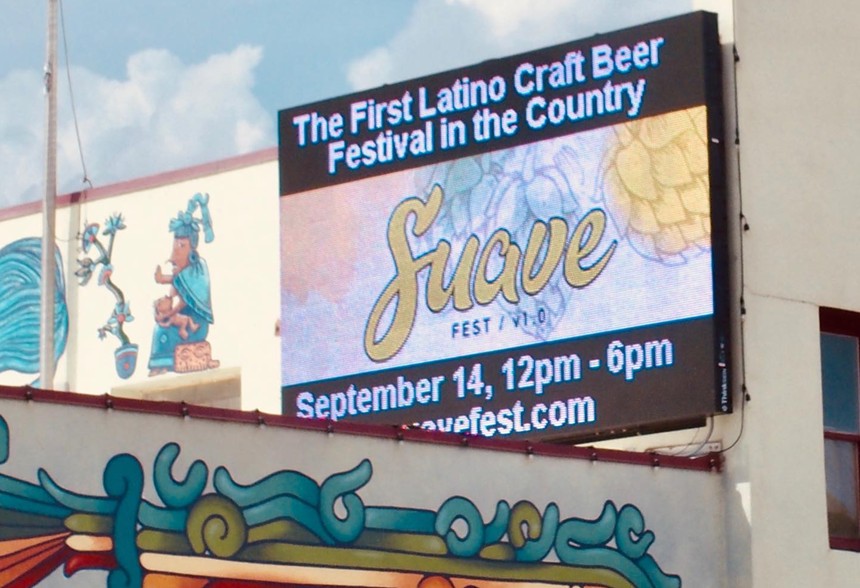
An LED sign on the side of Su Teatro Cultural and Performing Arts Center advertises the festival.
Raices Brewing
The fest will be funded in part by the Boulder-based Brewers Association, which doled out a total of $20,000 last May to six organizations who had applied for the BA’s inaugural Diversity and Inclusion Event grants. One of the other grant winners was Fresh Fest, a wildly successful two-year-old Pittsburgh event that focuses on black-owned businesses and breweries. Beteta hopes Suave Fest will strike a similar chord with Latinos.
“We really want to bring that concept of culture forward, using beer as the vehicle,” he explains, adding that the fest could expand next year to include breweries outside of Colorado.
It’s quite a leap from two years ago, when Beteta, who is from Costa Rica, and Maldonado, who is from Puerto Rico, were putting together the business plan for the brewery. At the time, they thought they might be the only Latino-owned brewery in Colorado. One by one, however, they started hearing of others.
There was Cheluna Brewing, opened by Javier Perez, an emergency-room doctor whose parents are from Oaxaca, Mexico; Novel Strand Brewing, co-founded by Dominican-raised Chantel Columna; Coal Mine Avenue Brewing, whose owner, Manual Baca, has family stretching back hundreds of years in New Mexico; and Atrevida Brewing, whose co-owner and head brewer Jessica Fierro had won a nationally televised and publicized home-brewing contest with a tamarind beer dedicated to her Mexican grandmother.
Eventually, Beteta compiled a list of twelve Colorado breweries or breweries-in-planning that had at least some Latino or Latina ownership. Then he called for a meeting.
“I think he had the impression he was alone,” says Coal Mine’s Baca, and it’s understandable why he would think that. Most of the Latino brewery owners didn’t know one another, and although almost all of them reflected their culture or background in some way inside their breweries, few made a big deal of it.
“Heritage had never really come up before,” adds Baca, whose brewery will be at Suave Fest. “So it's cool that Jose took the initiative to seek everyone out and bring us together.”
Like most industries in modern America, craft brewing struggles with diversity, whether because of examples of sexism, race- and ethnicity-based insensitivity, or a general lack of active inclusion. The problems have made themselves more evident as the industry has grown — and have become more awkward, considering craft beer’s mantra of collaboration and cooperation.
The Brewers Association finally began to drill down on the subject about three years ago, and last month the trade group released the results of a fascinating survey. Nationwide, only 23 percent of the brewery owners who responded to the survey are women, and among brewers or brewing managers, only 9 percent are women. Only 2 percent of breweries have Latino ownership, while 1 percent have black ownership. Numbers for brewery staff (including taproom workers) are marginally better; for Latinos, they range between 4 and nearly 8 percent, depending on the job description.
Among beer drinkers, however, the number of non-whites increased less than one point, from 13.7 to 14.5 percent, between 2015 and 2018, according to other BA numbers from last year. “Minority craft drinkers are growing, but only because the total population of craft drinkers is growing, not because craft drinkers are getting more diverse along racial lines.”
“A lot of people in our community don’t feel comfortable in a craft brewery,” explains Cheluna's Perez, who says that barriers can include everything from language to cost to neighborhood proximity. “It’s awkward for them, not because anyone says anything to them or doesn’t want them to be there,” but because they dress differently and speak differently.
Suave Fest, he adds, has the potential to be a place where the predominantly white craft-beer culture and Latino cultures can meet in the middle — and where everyone can feel comfortable.
Whether that happens remains to be seen. “Twenty-twenty will be a big year,” Beteta concludes, referring to the presidential election and to immigration and race in America, “because we are not exempt from politics. Breweries will use these venues to have conversations and push for civic action. I think Latino breweries will become what barber shops are to African-Americans — spaces for safe and open conversation and action.”
Suave Fest runs from noon to 6 p.m. on Saturday, September 14. More information and tickets, which range from $45 to $60, can be found at SuaveFest.com.

